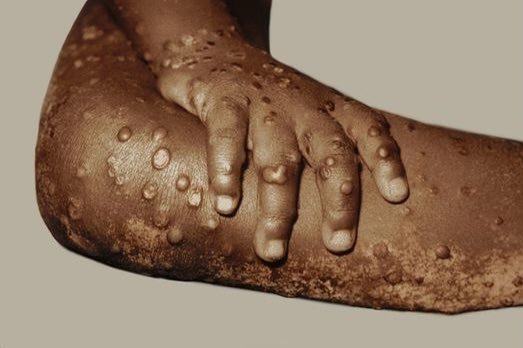Angler reels in ‘freaking scary’ fish in Texas marsh, photos show. It’s a rare beast
Mitchell Willetts
Wed, May 18, 2022,
An angler recently reeled in a rare and “freaking scary” fish after casting his hook into a murky Texas marsh, photos show.
The scaly creature’s striking look, jet black from tail to toothy tip, took the fisherman and his guide by surprise, according to a post by Lotus Guide Service.
“Well … (we) found out melanistic gar do exist,” said the May 16 post, sharing photos of the fish whipping and thrashing against the fishing line.

Lotus Guide Service wouldn’t say exactly where the fish was caught, but said it was in a southeast Texas marsh.
Long-established residents of Texas waterways, the prehistoric and prized alligator gar is typically brown or olive in color. But seemingly every inch of the one recently hooked in the “southeast Texas marsh” is dark black, save for the impressive teeth and pale gullet revealed by its open jaws.
Though harmless to humans, alligator gar are fierce enough in appearance and in name to inspire fearful myths about them — and this strange variation is particularly stirring to some, even those familiar with the fish.
“Freaking scary,” one commenter said. “Caught alligator gar growing up in Louisiana … put up a hell of a fight.”
“I like this, looks hella mean,” another said.
“Them thangs look deadly,” another read.
Melanism, a genetic anomaly that causes darker fur, hair, skin or scales, is known to occur across the animal kingdom, though it is exceptionally rare, McClatchy News reported.
How rare is melanism? Rare enough that experts generally lack enough data to offer exact figures. But there are reports of other gars with the condition having been caught or killed in the U.S.
While the black alligator gar has some locals vowing to keep their toes out of the water for the foreseeable future, others were simply impressed.
“Man that’s gorgeous,” a commenter said.
Some were so impressed that, had they been the one to catch the gar, they said they’d have it mounted in their man cave or trophy room for all to see.
The gar is safe from that fate, at least for now.
The angler let the fish go after catching it, Lotus Guide Service said, with the photos as the only trophies taken.

















